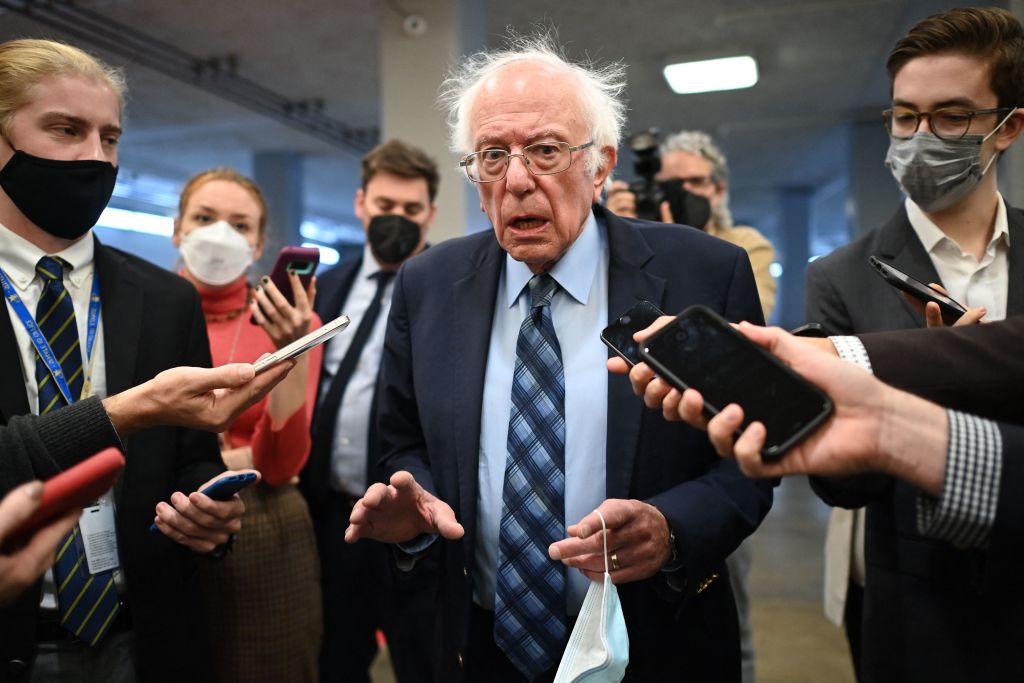With the Russia-Ukraine war disrupting the global oil market, Americans still can’t get a break at the gas pump as prices stay steadily high.
The national gas price average is $4.31 per gallon, AAA reported.
In an attempt to alleviate the pain of these prices, Democratic lawmakers have proposed a new bill.
New legislation, called the “Big Oil Windfall Profits Tax,” was introduced by Democratic Sen. Sheldon Whitehouse from Rhode Island and Rep. Ro Khanna from California.
The legislation is also cosponsored by other major Democrats like Sens. Jeff Merkley, Elizabeth Warren, Bernie Sanders, Richard Blumenthal, Tammy Baldwin, Cory Booker, Michael Bennet and Bob Casey, Rigzone news reported.
This proposed legislation would place a tax on oil barrels sold by large producers. The tax would be “equal to 50 percent of the difference between the current price of a barrel of oil and the pre-pandemic average price per barrel between 2015 and 2019,” Fox News reported.
If oil prices are at $120 per barrel, this tax would raise an estimated $45 billion a year, the Wall Street Journal reported.
The money from this tax would then be sent to consumers as a quarterly rebate, the legislation outlines. The cutoff for the rebate would be for single people making $75,000 or more and families making $150,000 or more.
“Under that price scenario, the revenue split up for taxpayer rebates would amount to an annual payment of $240 for a single filer earning less than $75,000 and $360 for joint filers earning less than $150,000, proponents said,” the Wall Street Journal reported.
Khanna said that this tax is meant to hold big oil companies accountable and protect Americans.
“This is a bill to reduce gas prices and hold Big Oil accountable. As Russia’s invasion of Ukraine sends gas prices soaring, fossil fuel companies are raking in record profits. These companies have made billions and used the profits to enrich their own shareholders while average Americans are hurting at the pump,” Khanna said, Fox News reported.
“We’ve seen this script before, and we cannot allow the fossil fuel industry to once again collect a massive windfall by taking advantage of an international crisis,” Whitehouse said.
A press release from Whitehouse and Khanna said the increase in gas prices “is not justified by increases in the cost of domestic production, but is driven by international markets controlled by fossil fuel cartels,” Fox News reported.
However, the proposed legislation has already garnered heavy criticism for not being a tenable solution to the oil crisis the U.S. is facing.
“The American people are looking for solutions, not finger-pointing,” Frank Macchiarola, the vice president of policy, economics and regulatory affairs at the American Petroleum Institute told the Wall Street Journal.
The American Petroleum Institute said that lawmakers should not be creating policies to discourage investment, but instead should find solutions that will increase American oil supply.
Experts are saying that policies like this proposed tax would likely even backfire and just make energy and oil costs worse in the long run.
“Policies like a so-called windfall profits tax are misguided and would likely backfire by further driving up energy costs for American families and businesses,” Anne Bradbury, the CEO of American Exploration and Production Council CEO said, Fox News reported.
Policies like this are bad, short-term fixes. It’s like trying to put a Barbie Band-Aid on a wound that needs stitches. It might help the bleeding for a moment, but it won’t heal the wound.
“We believe that the solution to rising energy prices should be clear to our nation’s leaders: support domestic production of oil and natural gas and permit the pipelines and infrastructure needed to safely move energy to customers,” Bradbury said.
Sure, big oil may be making money off of an international crisis, but the answer to that is not taxing them into oblivion as punishment. That would de-incentivize them from producing oil, and then the country would end up in yet another oil supply crisis with rising gas prices.
In the current global oil crisis and market shift, these Democrat lawmakers are searching for answers. They have more or less run into Occam’s razor. They could either simply promote domestic oil production to ease the crisis, or they could come up with complicated theories for solutions.
Occam’s razor states that the simplest solution is usually the best. But Democrats have chucked that logic and gone for the complicated ideas.
But this is no solution and it won’t solve Americans’ problem at the gas pump.
This article appeared originally on The Western Journal.
























 Continue with Google
Continue with Google